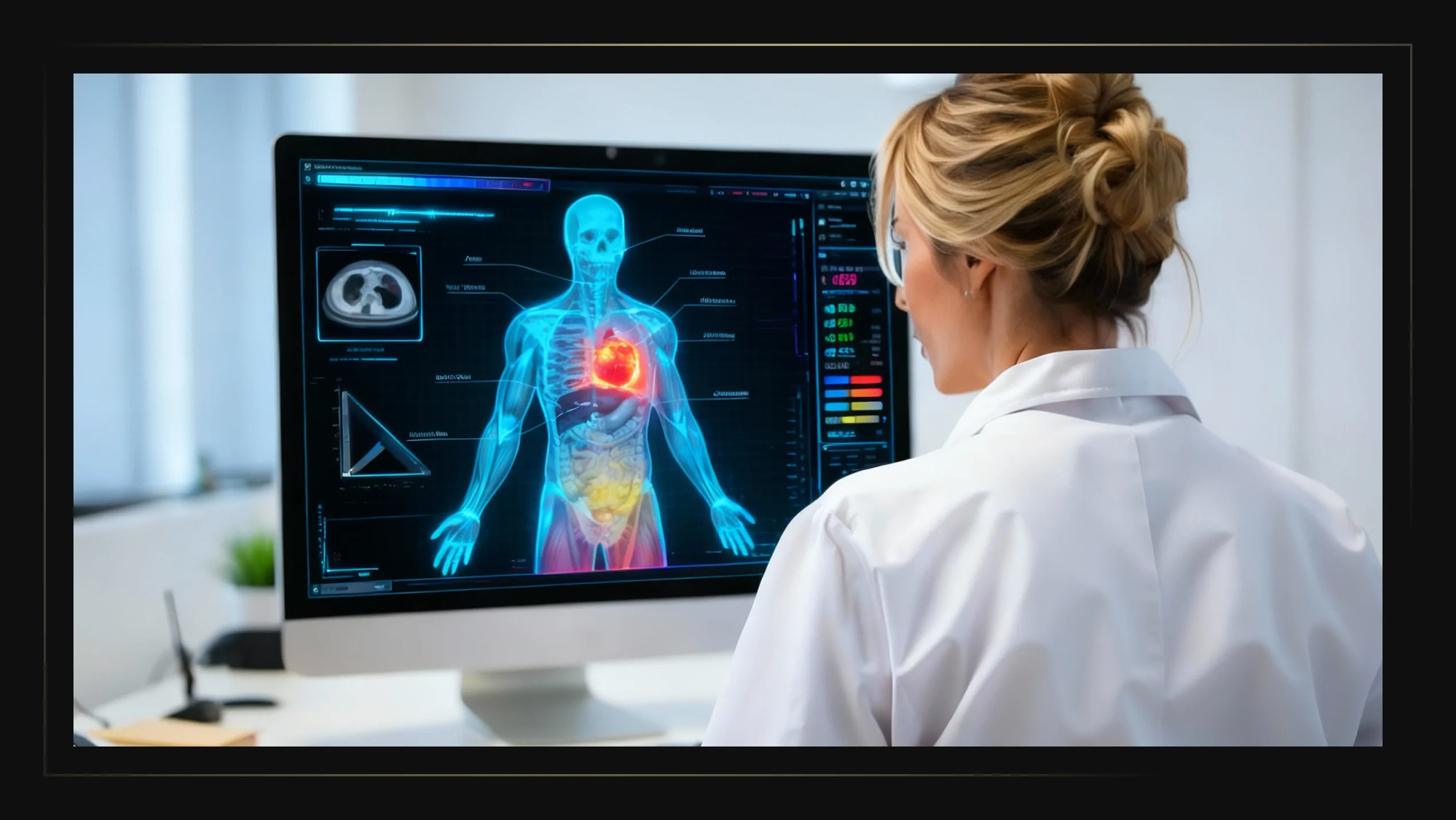Can artificial intelligence replace doctors? The rise of AI in healthcare has raised this question across the medical community. Artificial intelligence excels at data analysis, medical imaging, and pattern recognition, but replacing physicians is not its purpose. Instead, AI tools are designed to support healthcare professionals by enhancing diagnostic accuracy, refining treatment planning, and improving patient outcomes.
While AI programs process vast amounts of medical data and deliver precise results, the essential role of human physicians — empathy, clinical judgment, and human expertise — remains irreplaceable.
The Evolving Role of AI in Medicine
Artificial intelligence is bringing significant changes to medicine. AI systems automate repetitive tasks, analyze patient data, and streamline workflows, allowing healthcare professionals to dedicate more time to patient care. For the healthcare industry, this means more efficient healthcare delivery and better patient outcomes.
Medical AI augments rather than replaces doctors. By providing rapid analysis and second opinions, AI supports human doctors in making more informed clinical decisions. The American Medical Association and Harvard Medical School both emphasize that while AI will reshape medicine, the doctor-patient relationship and the role of human physicians will remain central.
How AI Enhances Clinical Practice
AI excels in medical diagnostics by analyzing medical images and test results with speed and precision. Deep learning algorithms often match or exceed human radiologists in detecting conditions like breast cancer. These systems improve diagnostic accuracy and give doctors valuable decision support.
AI models also improve treatment planning by suggesting possible diagnoses and forecasting patient outcomes. With personalized treatment plans built from medical records and clinical data, AI supports precision medicine and helps healthcare providers improve accuracy in care delivery.
For physicians, this means less time spent on administrative tasks and more time focusing on complex cases, ensuring better patient care overall.
Benefits and Challenges of AI in Healthcare
AI applications bring clear benefits: faster diagnoses, enhanced diagnostic accuracy, and more personalized medicine. AI tools also support mental health care through chatbots and digital assistants that provide mental health support and patient engagement outside clinical settings.
Still, challenges remain. Over-reliance on AI could lead to errors if human oversight is lacking. Ethical implications such as bias in AI algorithms and accountability in clinical decisions must be carefully managed. Protecting medical data and ensuring data privacy are critical, as AI systems rely on sensitive health records and patient information.
These issues show why AI should be seen as an aid, not a replacement, and why human judgment must guide medical decisions.
The Human Touch in Medicine
No matter how advanced AI becomes, the human touch remains irreplaceable in healthcare. Doctors bring empathy, compassion, and trust to the doctor-patient relationship—qualities that AI cannot replicate. Physicians provide not just diagnoses, but reassurance and care that depend on human connection.
Harvard Medical School has highlighted that while AI improves accuracy, it cannot replace human expertise in clinical judgment. Patients rely on doctors for emotional support and great medical advice grounded in experience. AI can improve accuracy, but human physicians bring understanding and nuance that machines lack.
Future Directions in Healthcare
The future of healthcare will rely on collaboration between AI and human physicians. AI will continue to assist with medical diagnostics, personalized treatment plans, and predictive analytics, while human doctors guide complex cases and patient relationships. Reports from the healthcare community and leaders such as Bill Gates point to AI’s potential to provide “great medical advice,” but also stress that the role of doctors will evolve, not disappear.
As medical AI develops, expect AI to handle more specific tasks such as image and speech recognition, drug discovery, and data analysis. But human expertise, clinical judgment, and the doctor-patient relationship will remain at the heart of medicine. The future of health care is not AI replacing physicians. It's AI empowering them to deliver better patient outcomes.

Related articles
Supporting companies in becoming category leaders. We deliver full-cycle solutions for businesses of all sizes.


.webp)
.webp)
.webp)
.webp)
.webp)